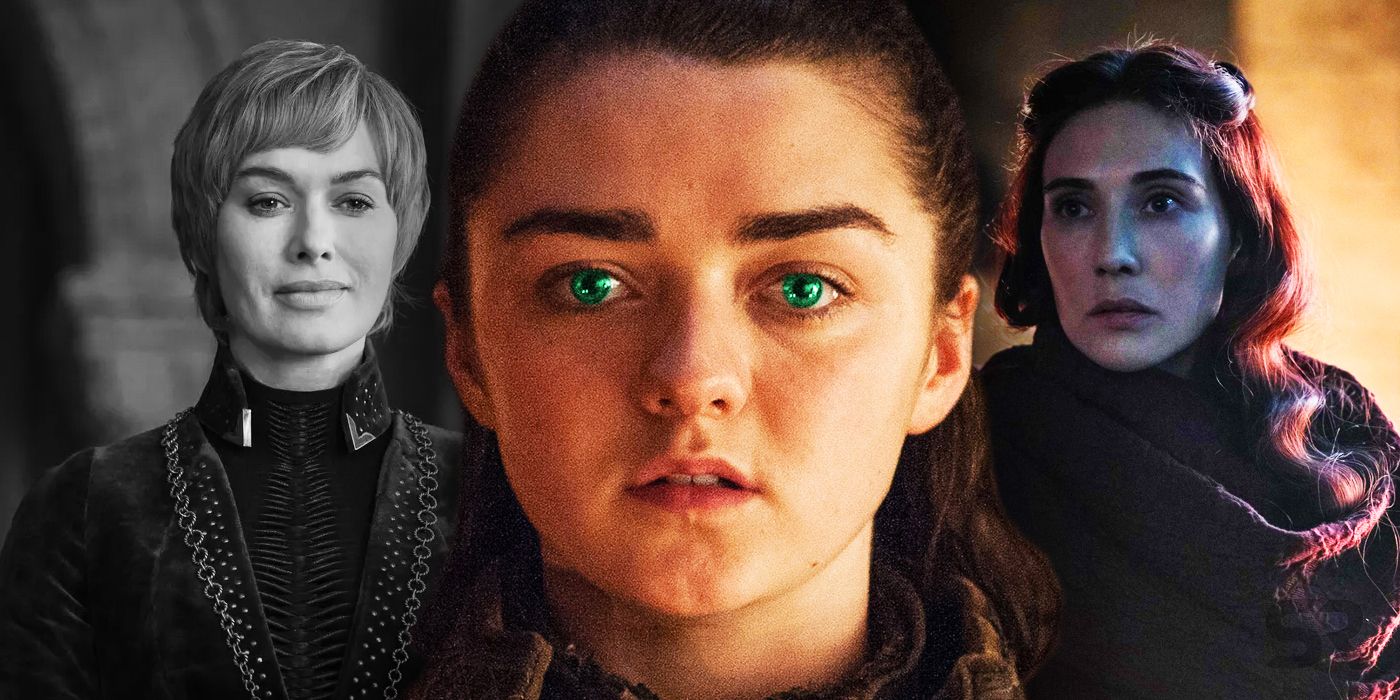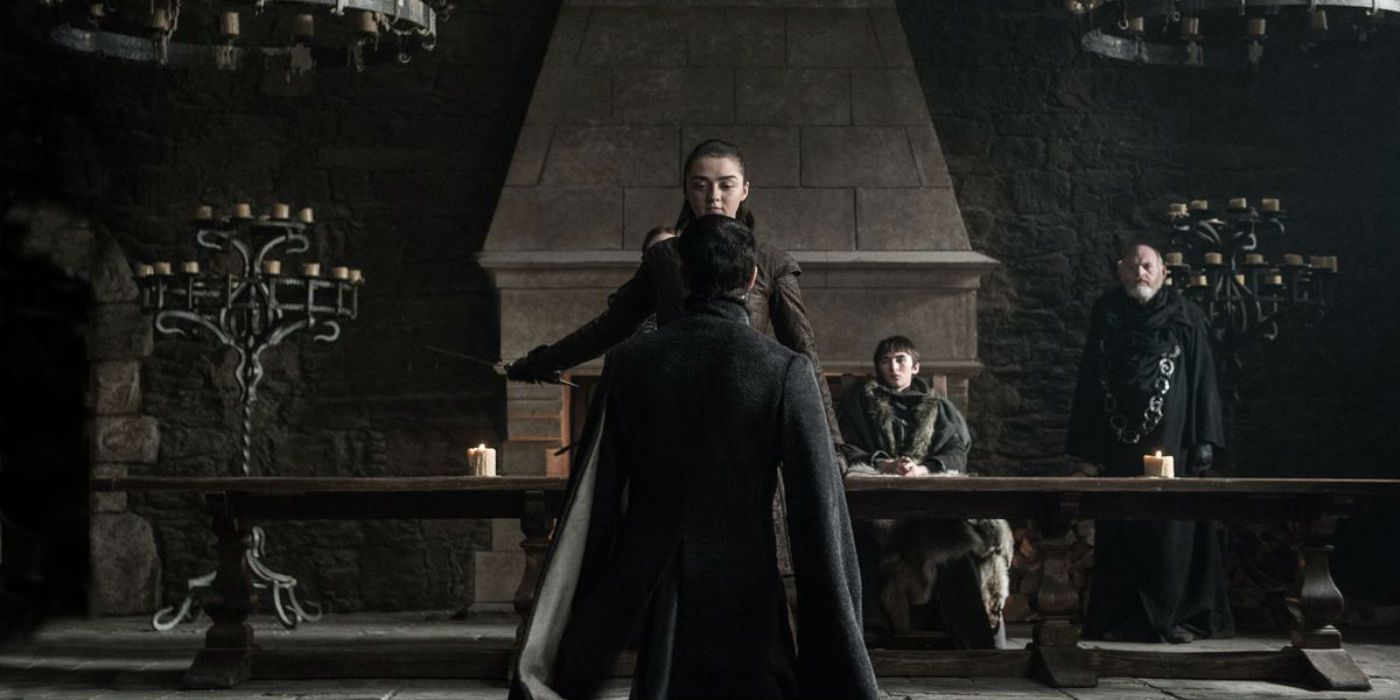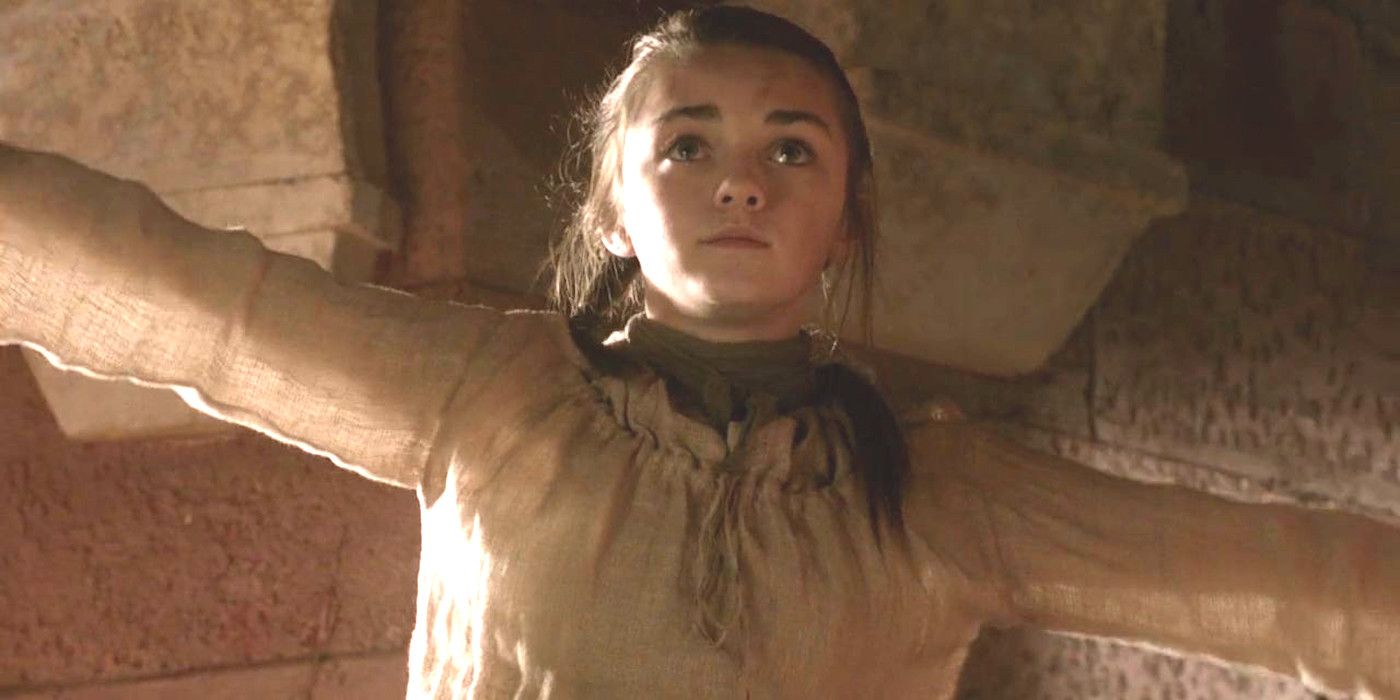Did Game of Thrones complete Melisandre's prophecy about Arya killing someone with green eyes? Even though the HBO show's ending wrapped up most of its big ideas, fans are still debating many details, especially when it comes to prophecies. Game of Thrones was a series that was packed with prophecy, visions, dreams and, while some were very clearly fulfilled, others were rushed through or seemed to be forgotten about by the end. But while some argue that this was just bad writing (one of the biggest complaints about Game of Thrones' final season), there are ways to make most fit.
Back in Game of Thrones season 3, when Melisandre met Arya for the first time, the Red Priestess told Arya: "I see a darkness in you, and in that darkness, eyes staring back at me. Brown eyes, blue eyes, green eyes, eyes you’ll shut forever. We will meet again". This was repeated when they did see each other again at the Battle of Winterfell, with emphasis on the blue eyes being those of the Night King. But what of the brown and green eyes?
For the brown, Walder Frey is Arya's biggest kill with that eye color. As for the green, a favorite fan theory was that this referred to the death of Cersei Lannister, yet not only did Arya not kill the Queen, she didn't stick any other major players after the Night King with the pointy end. However, it's possible that the prophecy was referring to a previous, still important green-eyed kill of hers: Littlefinger.
Melisandre's Prophecy Might Have Referred To Littlefinger
Arya killed Littlefinger in the Game of Thrones season 7 finale as the culmination of a plot that brought the Stark siblings back together. While some viewers speculated this was just a fake-out, and that Littlefinger would return for season 8, it's now clear that he was most definitely dead. And that's good for Melisandre's Arya prophecy: in the books, Littlefinger is described as having dark hair with some gray in it, and "laughing green-grey eyes, like a cat."
Accepting Littlefinger as the "green eyes" on Arya's kill list means changing the order of Melisandre's prophecy, from "brown eyes, blue eyes, green eyes" to "brown eyes, green eyes, blue eyes," although not only is there nothing to say that Melisandre was placing a specific timeline on her words, that's exactly the reordering she does during the Battle of Winterfell. Given how vague some of Game of Thrones' prophecies are, none of that is much of a stretch.
Of course, in addition to Walder Frey, Littlefinger, and the Night King, Arya killed plenty of people as she slaughtered her way from King's Landing to Essos and back again, and many were not on-screen long enough to really pay attention to their eye colors. With that in mind, it's perfectly possible that the "eyes" Melisandre theory was a Game of Thrones prophecy foretelling Arya's journey from a tomboy to a trained assassin – a prophecy that most definitely came true. The Red Woman's words to her at the Battle of Winterfell may have been nothing more than a reminder of how capable a killer Arya is, which would fit (albeit a little less neatly).
How The "Green Eyes" Prophecy Theory Creates A Show Plot Hole
Melisandre's Arya prophecy ultimately creates a minor plot hole in Game of Thrones. Petyr Baelish is played by Aiden Gillen, who actually has blue and not green eyes. It's possible that this is due to the show's exhaustion of the book's source material in season 5 and the need to come up with a proper ending for the characters in seasons 6-8. In the books, Arya might also end up killing Littlefinger, who does have green eyes in the novels, thus fulfilling Melisandre's prophecy. It's also possible that her words just referred to the fact that Arya would become a lethal assassin who would kill many people rather than referring to three specific kills, but this seems like a waste of a good prophecy puzzle.
That being said, whichever way viewers interpret Melisandre's prophecy, its fulfillment works better in the books than it does in the series. The biggest issue with Littlefinger in particular being Arya's green-eyed victim is that, in the Game of Thrones series, Aidan Gillen has blue eyes. While Gillen's smirking, slimy performance is note-perfect, his eye color isn't how the character's literary source is described. Given that the show's "Prince Who Was Promised" prophecy ultimately amounted to very little, the showrunners may simply be trying to show that political shifts affect the course of history more than prophecies by leaving the latter unexplained and unfulfilled. In the books, however, Littlefinger may want to watch his back when the youngest Stark daughter is around – Martin hasn't yet shown how he's interpreting these prophecies. Littlefinger and his meddling ways get their comeuppance in the show regardless.



